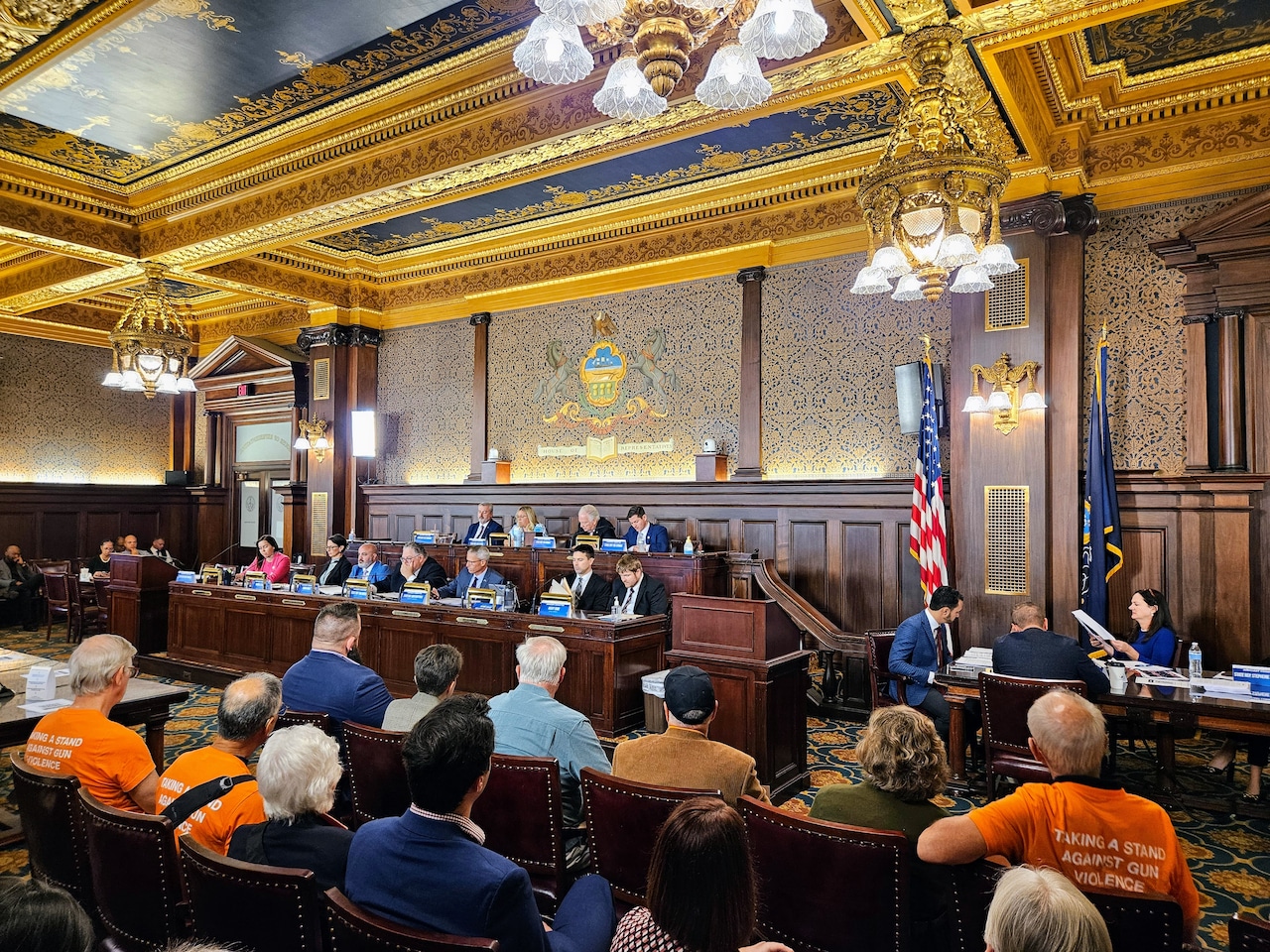
In case you thought the politics of gun control in the Pennsylvania House of Representatives would have changed in light of recent events, the answer is no, they have not.
The House Judiciary Committee on Monday approved five bills on firearms regulation — one of them unanimously, and four others on party-line votes between the committee’s 14 Democrats and 12 Republicans.
Democrats described the latter measures as common-sense ways to reduce gun violence and keep weapons out of the hands of those who aren’t allowed to have them; Republicans described the bills as attacks on the fundamental right to bear arms found in both the state and federal constitutions.
The tenor of Monday’s meeting was identical to several similar meetings that have taken place over the past two-and-a-half years since Democrats won a single-seat majority in the House. Several gun reform measures have narrowly passed through the chamber amid vociferous debate; none have been taken up in the Republican-majority Senate.
Asked after Monday’s meeting if he expected anything different this time around, committee chair Rep. Tim Briggs, D-Montgomery County, said “no, but we’ve got to keep trying.”
“The committee’s whatever the committee is,” Briggs said regarding his Republican colleagues, “but it’s always been a priority of mine and of Democratic members of the committee to advance these bills.”
The one bill that elicited bipartisan support was a Republican-sponsored measure that would allow counties to eliminate fees to obtain a concealed carry license for veterans and senior citizens.
The other four bills included:
A measure that would ban guns that do not have at least one major component made of metal. The bill is functionally a state-level version of a 1988 federal law requiring firearms to have a minimum steel content so that they cannot evade metal detectors.
A measure that would require sales of long-barreled rifles and shotguns to be done through a licensed firearm dealer and go through a background check, even if neither the seller nor buyer is a dealer. Currently, direct private sales of long guns are exempt from such a requirement, which only applies to handguns and short-barreled firearms.
A measure that would ban the possession of mechanical devices that allow semi-automatic firearms to function as machine guns, particularly the “Glock switch” devices that can be installed on Glock pistols. The bill would mirror an existing federal-level rule, which classifies such devices as machine gun parts and restricts their possession to licensed manufacturers of military and police weapons.
A measure establishing Extreme Risk Protection Orders (ERPOs), commonly known as “red flag” laws, by which a judge can order the temporary confiscation of a person’s firearms if there is sufficient evidence that they pose a risk to themselves or others.
Debate over the four bills on Monday indicated that the political dynamics haven’t really shifted, despite recent high-profile incidents of gun violence that continue to lead headlines — including the assassination of conservative activist Charlie Kirk and the killing of three police officers\ by a gunman in York County.
“We are not going to solve this problem by continuing to pass gun legislation, which frankly, for the most part, is repetitive,” said Rep. Tim Bonner, R-Mercer County. A former prosecutor, Bonner said he never encountered a case where a crime could’ve been stopped by an additional layer of firearms regulation.
But “the benefit of establishing a state-level prohibition is that it provides local and state law enforcement prosecutors a way to enforce the prohibition,” Briggs retorted, noting that the state district attorneys’ association, as well as the Glock corporation itself, had written a letter supporting a state-level ban on aftermarket machine gun conversion devices.
The bill “will do absolutely nothing to prevent criminals from obtaining [such devices], because criminals don’t follow the law,” said Rep. Robert Leadbeter, R-Columbia County, a sentiment also voiced by a number of his colleagues when it came to nearly all the bills at issue Monday.
But this line of thinking leads to some odd places, Democrats warned, if Republicans mean to suggest that any law becomes unnecessary once someone has broken it.
“By the logic of the previous speaker, I’m not really sure why the legislature exists,” said Rep. Emily Kinkead, D-Allegheny County.
The legislature constantly passes laws creating criminal offenses as a deterrent to crimes that are already happening in defiance of other state or federal laws, “and yet these arguments are never made about those laws,” Kinkead observed. “It seems to only come up when it comes to gun violence prevention.”
Of the bills passed Monday, the background check expansion and “red flag” measures already have a proven chance of success, having been passed by the full House in 2023 with a smattering of Republican support.
The margins for gun-related bills remain tight, however. That same series of votes two years ago saw a rare case of a bill failing on the House floor, when Rep. Frank Burns, D-Cambria County — one of the most conservative Democrats in the chamber — joined Republicans in voting against a bill that would punish gun owners who fail to report lost or stolen firearms.
Likewise, on Monday, Briggs moved to delay a vote on a bill that would’ve limited Pennsylvanians to one handgun purchase per month. Rep. Dan Miller, D-Allegheny County, had submitted a proxy voting form to cast his vote against the measure, according to Briggs, meaning the bill likely would’ve failed committee by a 13-to-13 split had Briggs allowed it to run.



